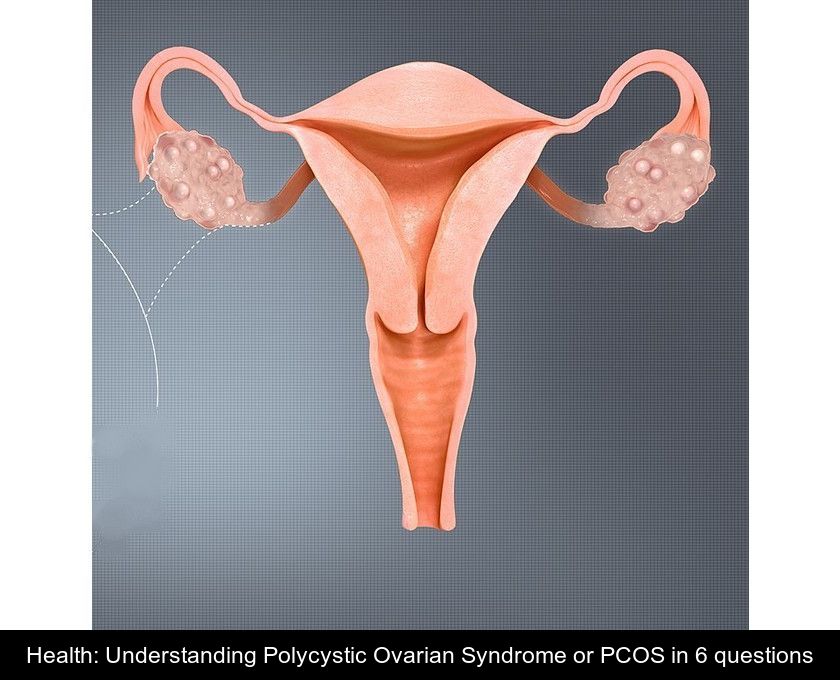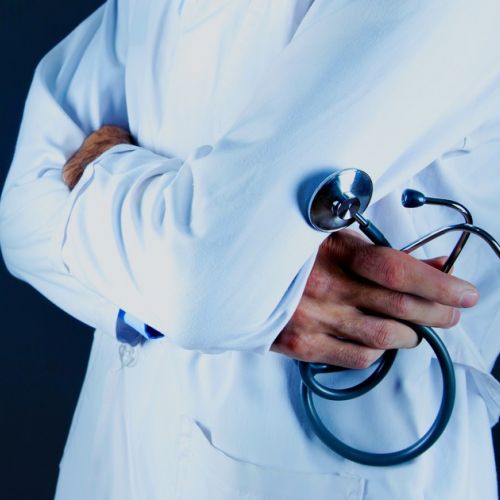Health: Understanding Polycystic Ovarian Syndrome Or Pcos In 6 Questions
A little-known disease, polycystic ovary syndrome, or PCOS, affects 5 to 10% of women of childbearing age. However, this not so rare disease can be a cause of infertility. We suggest you better understand PCOS in 6 questions.
1- What is this disease?
Polycystic ovary syndrome also known as PCOS, polycystic ovarian disease or Stein-Leventhal syndrome is a fairly common but still too little known disease.
In most women who have it, it remains undiagnosed and unmanaged, which is why it is important to learn how to recognize its symptoms.
2- What is it due to?
Polycystic ovary syndrome is a consequence of hormonal imbalance, i.e., excessive production of male hormones in women.
This is also known as hyperandrogenism or excess testosterone.
This hormonal imbalance results in different symptoms that usually appear during adolescence:
- acne
- Irregular menstrual cycles, with spaced out periods or no periods at all
- male hair growth or hirsutism, such as moustache and hair on the chin and chest
- overweight or obesity
- Ovulation disorders.
The intensity of these symptoms varies greatly from woman to woman.
It is also now known that this disease has a hereditary component. Thus, a woman who suffers from PCOS has a 50% chance of passing it on to her daughters and that her sisters suffer from the same syndrome.
For all that, polycystic ovarian disease is not considered a genetic disease.
3- Who should I consult?
A girl who suffers from severe acne or hyperpilosity will tend to consult a dermatologist.
However, it is the gynaecologist who usually makes the diagnosis of polycystic ovary syndrome.
The gynecologist may also refer the patient to an endocrinologist.
4- Is this disease difficult to diagnose?
If your gynecologist suspects polycystic ovary syndrome, he or she may perform a pelvic ultrasound.
This test can actually reveal larger than normal ovaries.
In addition, your doctor will usually order a blood test to confirm the diagnosis of PCOS.
The purpose of this blood test is to measure luteinizing hormone (LH), follicle stimulating hormone (FSH), as well as pituitary hormones (which control the functioning of the ovaries) and testosterone.
Elevated testosterone and LH levels, combined with low FSH levels, are sufficient to confirm the diagnosis of polycystic ovarian disease in 95% of cases.
5- What are the consequences of this disease?
Polycystic ovary syndrome is a disease that requires regular medical monitoring throughout life.
This hormonal disruption can actually lead to other health problems such as type 2 diabetes, high cholesterol or obesity (which are themselves risk factors for cardiovascular disease).
In women of childbearing age, highly irregular cycles and spaced or absent ovulations lead to fertility problems.
In fact, PCOS is considered the leading cause of infertility worldwide. Fortunately, there are solutions to stimulate ovulation with a drug called clomiphene citrate.
Finally, because of the lack of progesterone secretion, this hormonal disruption leads to an increased risk of cancer of the endometrium, the mucous membrane lining the uterus.
6- Are there effective treatments?
There is no cure for polycystic ovary syndrome, but we can limit the symptoms.
If you have no contraindications and no desire to have children, you should know that it is possible to take an estrogen-progestin pill.
This pill will put the ovaries to rest and decrease the production of testosterone. It will thus improve acne and hirsutism, allow more regular cycles and restore a certain hormonal balance.
The treatment of each patient is personalized according to her disorder and the intensity of her symptoms.
For example, there is a specific medication for people with severe hirsutism, especially on the face.
On the other hand, if your symptoms are minimal, you will only need to have a blood test to check your cholesterol levels as well as your triglycerides and blood sugar.
If you are not overweight, medication may not be warranted. Nutritional advice and regular physical activity (which is recommended for everyone) will be enough to prevent possible weight gain.








